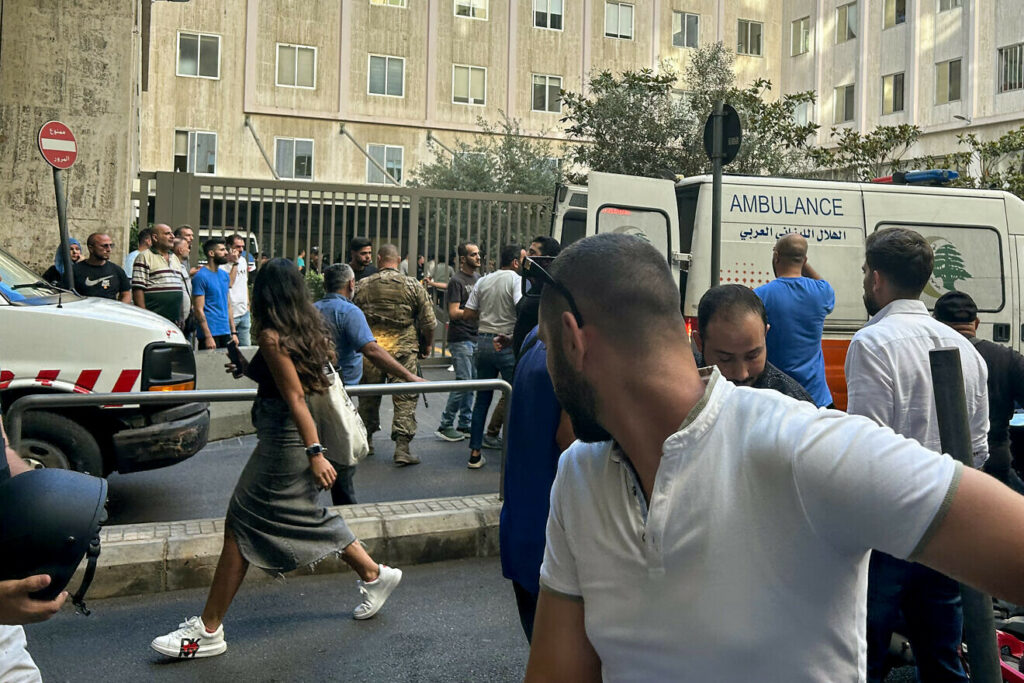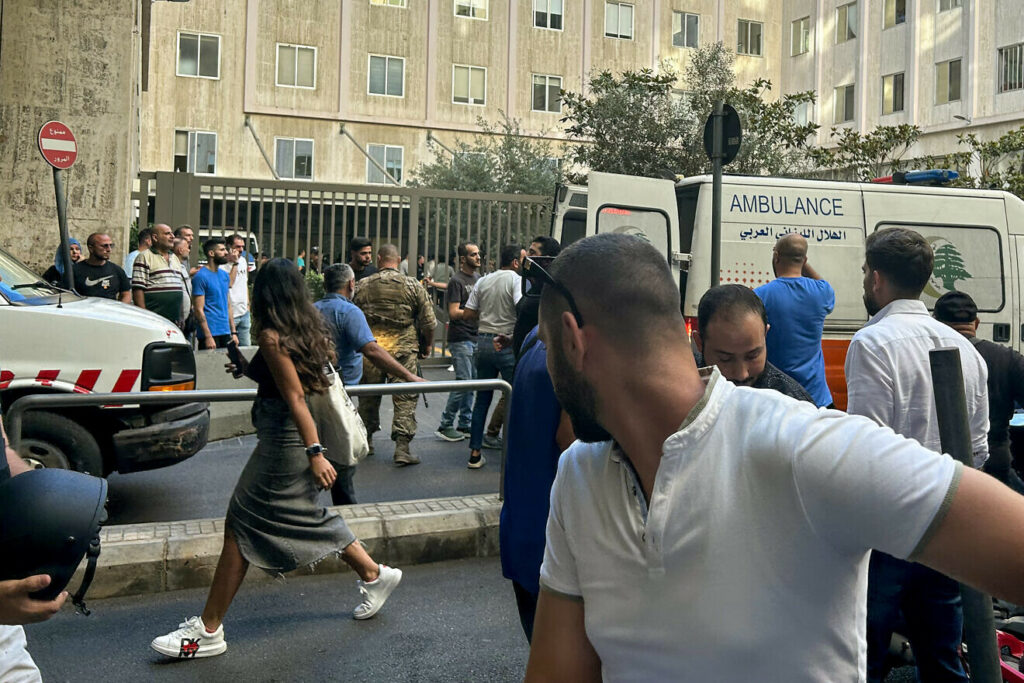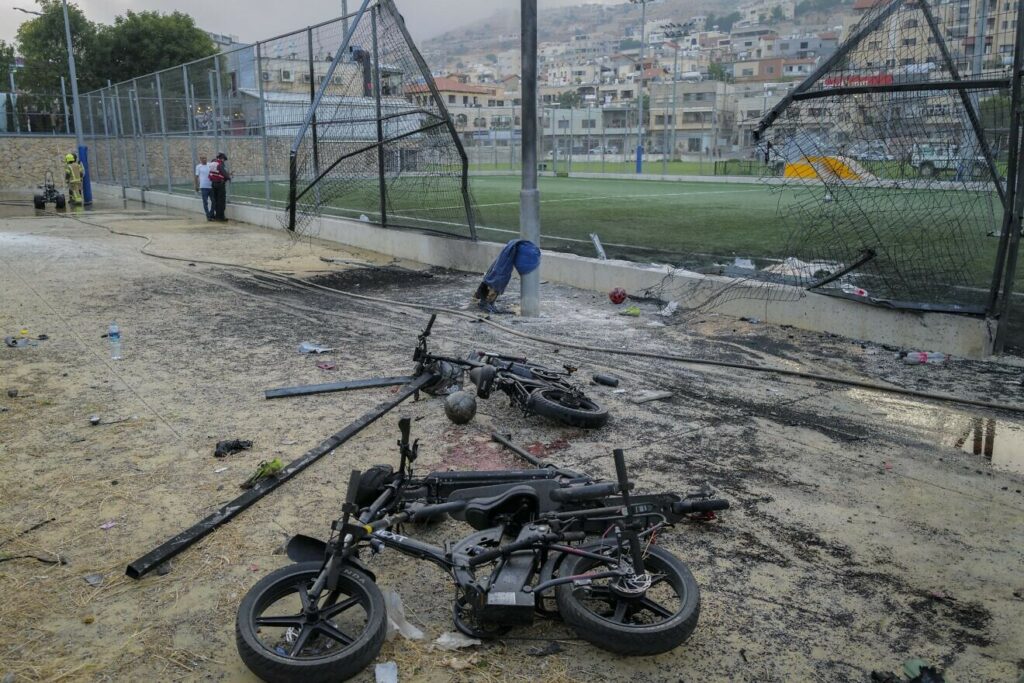
‘The ball is in Hezbollah’s court’
“What’s important is where this leads. Is it another round in the ping-pong game between Israel and Hezbollah—and if so it is worthless—or a prelude to a more significant confrontation?”
The detonation of thousands of Hezbollah pagers across Lebanon and Syria on Tuesday, resulting in at least 11 deaths and 3,000 injuries, appears to represent a new form of warfare.
While no claims of responsibility have been made in connection with the attack, Hezbollah quickly blamed Israel and has threatened retaliation. The Israeli Defense Forces and Israeli intelligence services are closely monitoring the situation, weighing the potential for further escalation.
On Tuesday evening, Lt. Gen. Herzi Halevi, head of the IDF General Staff, conducted a situational assessment with the General Staff Forum, addressing Israel’s readiness for both offensive and defensive operations across all theaters. The military’s Home Front Command issued no change to its guidelines, but advised the public to “remain alert and vigilant,” adding that “any change in policy will be updated immediately.”
According to Brig. Gen. (res.) Yossi Kuperwasser, former head of IDF Military Intelligence’s Research and Assessment Division and a senior research fellow at the Misgav Institute for National Security and Zionist Strategy, the ball is now in Hezbollah’s court.

“Based on that, we’ll see how this moves forward,” said Kuperwasser, who is also a senior research fellow at the Jerusalem Center for Foreign Affairs.
Hezbollah’s range of options ranges from the minor all the way up to a large-scale attack on Israel, he said, adding that Israel is prepared for all scenarios.
If a full-scale war does break out, he said, Israel will now be in an improved starting position to create a new reality in southern Lebanon.
A large-scale Hezbollah attack “could give Israel justification for an operation” in Southern Lebanon, he said. He noted however that “Israel can do this without any further justification, since Hezbollah has been attacking northern Israel without stop.”
Still, he assessed, a broad Hezbollah attack in response to an incident for which Israel maintained deniability could provide clearer justification for an Israeli operation in southern Lebanon.
Rami Igra, a former senior official with Israel’s Mossad intelligence agency, told JNS that if Israel was involved in the incident, “What’s important is where this leads. Is it another round in the ping-pong game between Israel and Hezbollah—and if so it is worthless—or a prelude to a more significant confrontation?”
Igra emphasized that Hezbollah’s military-terrorist capacity remains largely intact. “Nothing significant has happened to Hezbollah’s capability vis-a-vis the 150,000 missiles and Radwan forces on the Israeli border,” he argued. Igra warned that failing to address the Hezbollah threat now could lead to greater consequences down the road. “The lesson from Oct. 7 shows that when we fail to deal with a threat today, we will pay a much higher price down the line,” he said.

(Source: JNS)
Israel cannot afford to allow Hezbollah to continue unchecked, he added.
“Would a war in the north be simple? It seems not, but if we do not deal with it today, we will deal with it tomorrow, and what we do not pay today, we will pay double tomorrow,” he said. “I very much hope this was the beginning and not the end.”
According to Cmdr. (res.) Eyal Pinko, a researcher at the Begin-Sadat Center for Strategic Studies at Bar-Ilan University and a former Israeli Navy officer, Tuesday’s attack was highly sophisticated and likely took more than a year of planning.
Speaking during a video call organized by the Jerusalem Press Club, Pinko said the sophistication of the attack lies in the intelligence operation rather than the technology.
“Hezbollah is the largest drug baron in South America. Most of the drugs that are coming to the US, to Canada, to Europe are coming from Colombia and Mexico by Hezbollah,” Pinko explained, creating an infrastructure to purchase pagers. “If Hezbollah wants to buy these kinds of beepers or any other communication measures, they need some kind of straw company, they buy it for some kind of company, and from there it goes to Lebanon,” he said. “It’s a huge network, and of course, it’s using the Quds Force of Iran. It’s a whole supply chain.”
The former naval officer also emphasized that Hezbollah’s senior command structure had likely been affected by the recent events.
“Probably what is happening now in Hezbollah is that all the command structure from, let’s say, the rank of lieutenant colonel in a regular military to the generals, are severely wounded; some of them are already dead,” he said. This, he added, presents a potential opening for Israeli military action, though he expressed doubt that Israel would seek to escalate the situation.
“The Israeli government, the Israeli military do not want to go into escalation. They want to decrease the fire, they want to go into ceasefire,” he stated.
** This article was originally published on JNS.org **
The post ‘The ball is in Hezbollah’s court’ appeared first on Israel365 News.
Israel in the News